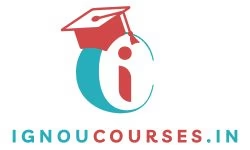Are you a new IGNOU student? Are you new to the IGNOU academic structure? Confused about what happens when? Here is a cheat sheet of everything that you need to know about what to expect and when.
The Indira Gandhi National Open University (IGNOU) is one of the world’s largest open universities, providing flexible learning opportunities to students across the globe. As a distance-learning institution, IGNOU serves millions of students through a wide range of programs, including Bachelor’s, Master’s, Diploma, and Certificate courses. To help students stay organized and meet their academic responsibilities, the university follows a structured academic calendar that outlines important dates for admissions, examinations, assignments, results, and convocation ceremonies.
The IGNOU academic calendar is divided into two main cycles—January and July—allowing students to enroll twice a year. This flexibility enables learners to start or continue their education without the constraints of the traditional academic year. While the timeline may vary slightly depending on the program, the overall framework remains consistent, providing students with a roadmap to navigate their academic journey.
IGNOU Academic Calendar Dates
| Event | TEE December | TEE June |
|---|---|---|
| Admission Start Date | November | May |
| Admission End Date | March | October |
| Re-Registration Start Date | November | May |
| Re-Registration End Date | February | September |
| Assignment Submission Deadline | September 30 | March 31 |
| Exam Form Submission Start Date | September | March |
| Exam Form Submission End Date | October (without late fee) | April (without late fee) |
| Term-End Examination (TEE) Dates | December- January | June- July |
| Term End Practical Examination (TEPE) | January- February | July- August |
| Tentative Result Declaration Date | February | August |
| Tentative Grade Card Release Date | March | September |
| Convocation Date | Feb- March (Once Every Year) | Feb- March (Once Every year) |
1. IGNOU Admission Cycles: January and July
IGNOU operates on a dual admission cycle, with enrollments opening twice a year, in November for the January session and May for the July session. This allows students to apply for a variety of programs, including Bachelor’s, Master’s, Diploma, and Certificate courses, depending on their eligibility and academic goals.
The open admission window is a defining feature of IGNOU’s accessibility. The university does not have a fixed number of seats for most programs, ensuring that anyone who meets the eligibility criteria can secure admission.
Check Details Here.
2. IGNOU Re-Registration: Continuing Your Studies
Re-registration is a critical component of IGNOU’s academic process, especially for students enrolled in Bachelor’s, Master’s, and Diploma programs. Re-registration refers to enrolling for the next semester or year of study in a multi-year program. The re-registration window typically opens alongside the admission cycle.
Students are required to re-register within this period to ensure they are eligible to continue their studies and appear for the next round of term-end examinations (TEE). Failure to re-register on time can result in a delay in their academic progress.
Check Details Here.
3. Assignments: Submission Deadlines
IGNOU places a strong emphasis on continuous assessment, which includes the submission of assignments as part of the evaluation process. Assignments are designed to encourage students to engage with the course material, ensuring that they understand the content before appearing for the term-end exams.
Assignments must be submitted on or before these deadlines for the respective cycles. Students who fail to submit their assignments on time are not allowed to sit for the term-end examinations. Therefore, the assignment deadlines are crucial to staying on track in any IGNOU program.
Check Details Here.
4. Term-End Examinations (TEE): Preparing for Finals
The Term-End Examinations (TEE) are one of the most important aspects of the IGNOU academic calendar. Held twice a year—December for the January cycle and June for the July cycle—these exams determine whether students have successfully mastered the course content.
To sit for the TEE, students must submit their exam forms within the designated window. Late submissions are allowed, but students are required to pay an additional fee. It is essential to complete both the assignments and the exam form process to be eligible for the exams.
Check Details Here.
5. Tentative Result and Grade Card Release
Once the Term-End Examinations are concluded, IGNOU begins the process of evaluating the students’ performance. The results are typically released within two months of the examination cycle, followed by the grade cards. These grade cards provide detailed insights into the student’s performance, including marks for both assignments and the TEE.
Students can access their results and grade cards online through the official IGNOU website. The timely release of these documents is essential for students to plan their next steps, whether it be re-registration or applying for job opportunities.
Check Details Here.
6. Convocation: Celebrating Academic Achievement
The convocation ceremony is a significant milestone in the academic calendar. Held annually in March, the convocation honors students who have successfully completed their programs and received their degrees. IGNOU typically sends invitations to eligible students, allowing them to attend the event in person or opt for their degrees to be mailed to them.
The convocation is an opportunity for students to celebrate their academic achievements alongside their peers. It is a proud moment for both students and their families, as it marks the culmination of years of hard work and dedication.
Check Details Here.


5 thoughts on “IGNOU Academic Calendar: Admission, Assignment, Exams, Results, Degree”